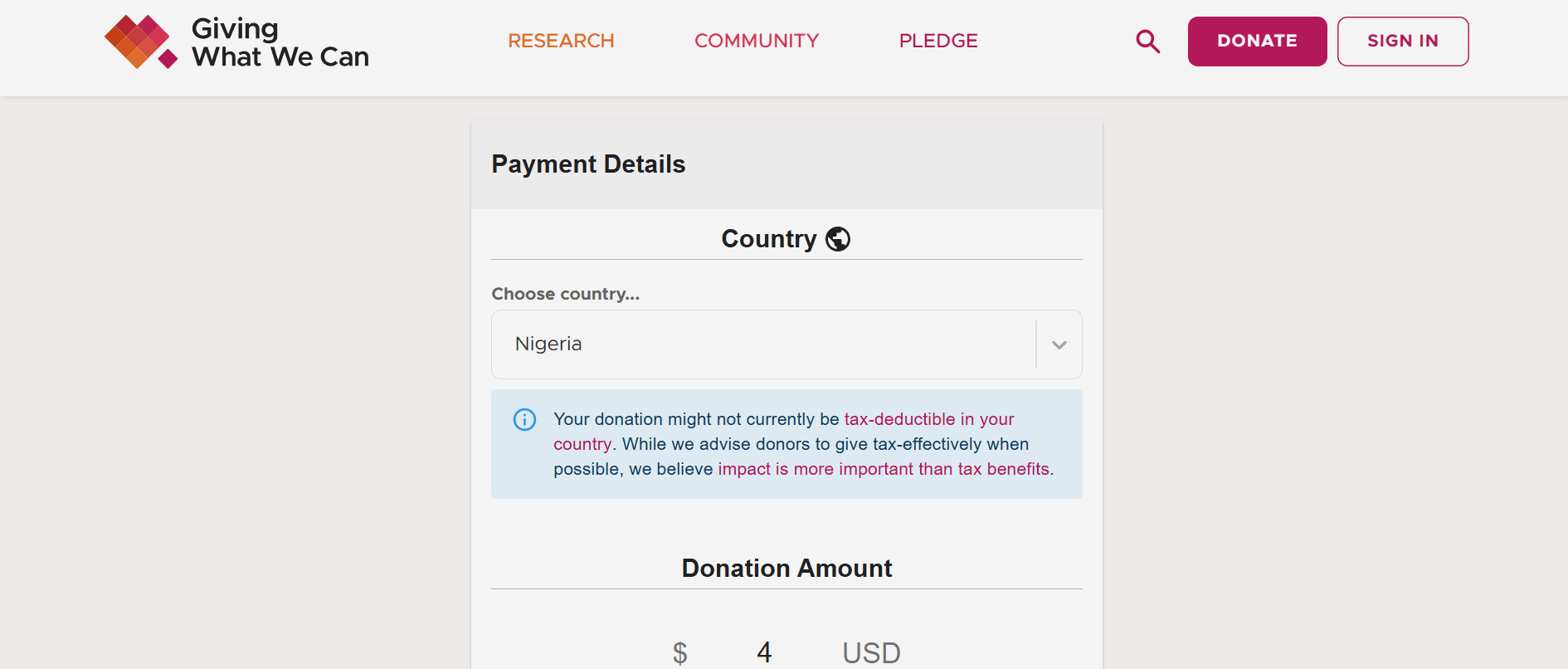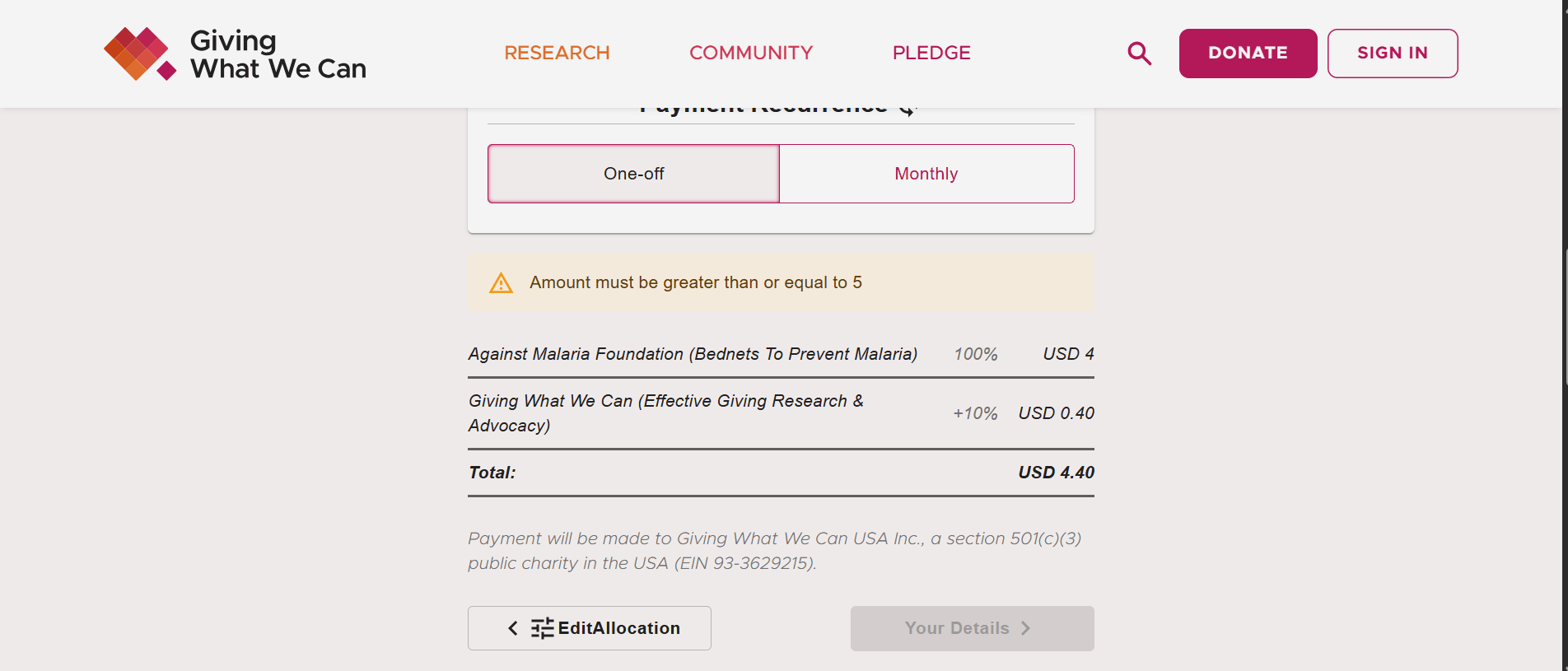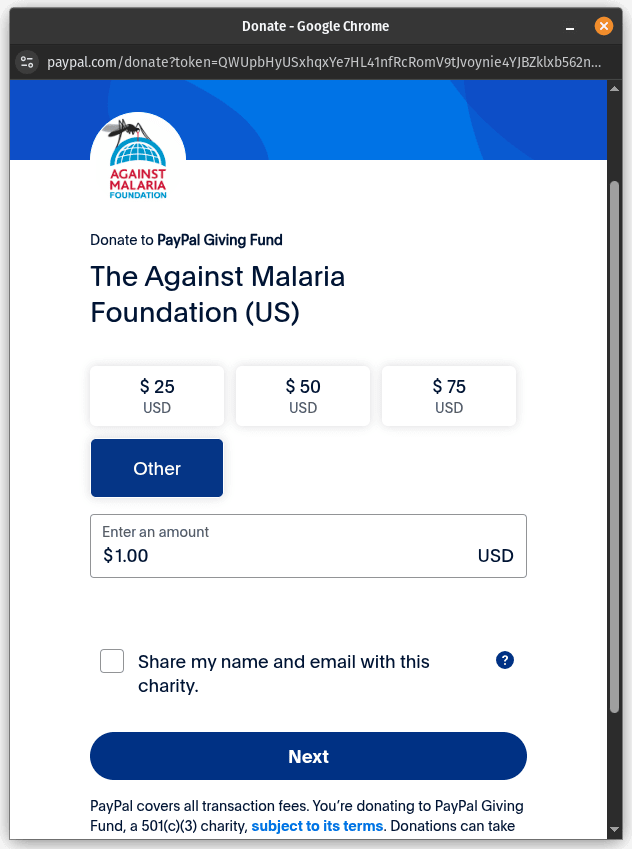I wanted to share a small but important challenge I've encountered as a student engaging with Effective Altruism from a lower-income country (Nigeria), and invite thoughts or suggestions from the community.
Recently, I tried to make a one-time donation to one of the EA-aligned charities listed on the Giving What We Can platform. However, I discovered that I could not donate an amount less than $5.


While this might seem like a minor limit for many, for someone like me — a student without a steady income or job, $5 is a significant amount.
To provide some context:
According to Numbeo, the average monthly income of a Nigerian worker is around $130–$150, and students often rely on even less — sometimes just $20–$50 per month for all expenses. For many students here, having $5 "lying around" isn't common at all; it could represent a week's worth of meals or transportation.
I personally want to make small, one-time donations whenever I can, rather than commit to a recurring pledge like the 10% Giving What We Can pledge, which isn't feasible for me right now. I also want to encourage members of my local EA group, who are in similar financial situations, to practice giving through small but meaningful donations.
In light of this, I would like to:
- Recommend that Giving What We Can (and similar platforms) consider allowing smaller minimum donation amounts to make giving more accessible to students and people in lower-income countries.
Suggest that more organizations be added to the platform, to give donors a wider range of causes they can support with their small contributions.
Uncertainties:
- Are there alternative platforms or methods that allow very small one-time donations to EA-aligned charities?
- Is there a reason behind the $5 minimum that I'm unaware of, and could it be adjusted to be more inclusive?
I strongly believe that cultivating a habit of giving, even with small amounts, helps build a long-term culture of altruism — and it would be amazing if students and individuals from around the world could participate more easily.
Thanks so much for reading. I'd love to hear your thoughts!


Related to this - as a journalist covering global health and development, one thing I struggle to get is accurate information on the ground from developing countries about the effects of US policies and cuts. One thing that EAs in Nigeria are uniquely positioned to do is keep us informed - I'd really value someone going to three HIV clinics in their area in Nigeria, checking if they are open, and if they're open asking them about their funding/how many people go there/how they've been affected by the freezing, unfreezing and cancellation of USAID grants/ whether they have any stories patients are willing to share about the effects of cancellations. Non-results (everything is running smoothly and unaffected) are also valuable.